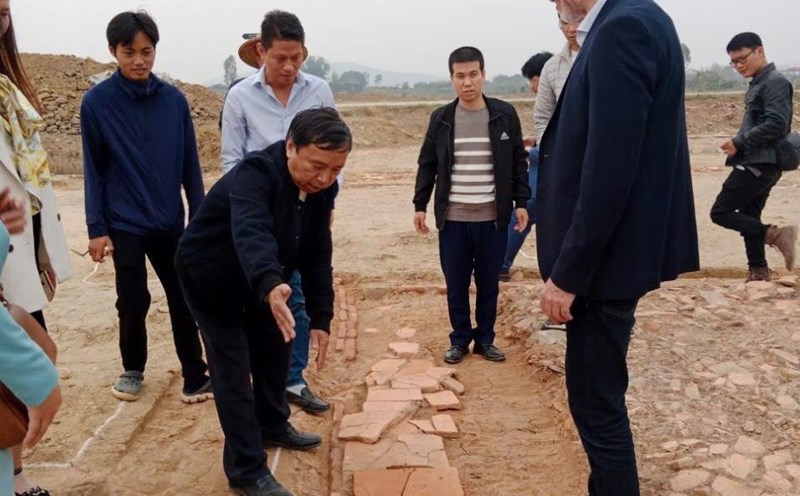From his wife's illness to the idea of starting a business
Having lived with atopic dermatitis, Ms. Bui Thi Bich Ngoc (Thanh Hoa) often suffered from cracked hands, bleeding every winter and could not use cleanser containing chemicals.
Witnessing his wife's many inconveniences in daily life, Mr. Le Duy Hoang (Thanh Hoa) has always wondered about this disease with the painful question: "How to make relatives less sick and live healthier? ".
That is probably the origin of a project that puts more passion and love than Mr. Hoang. The income of this project also comes from very everyday materials.
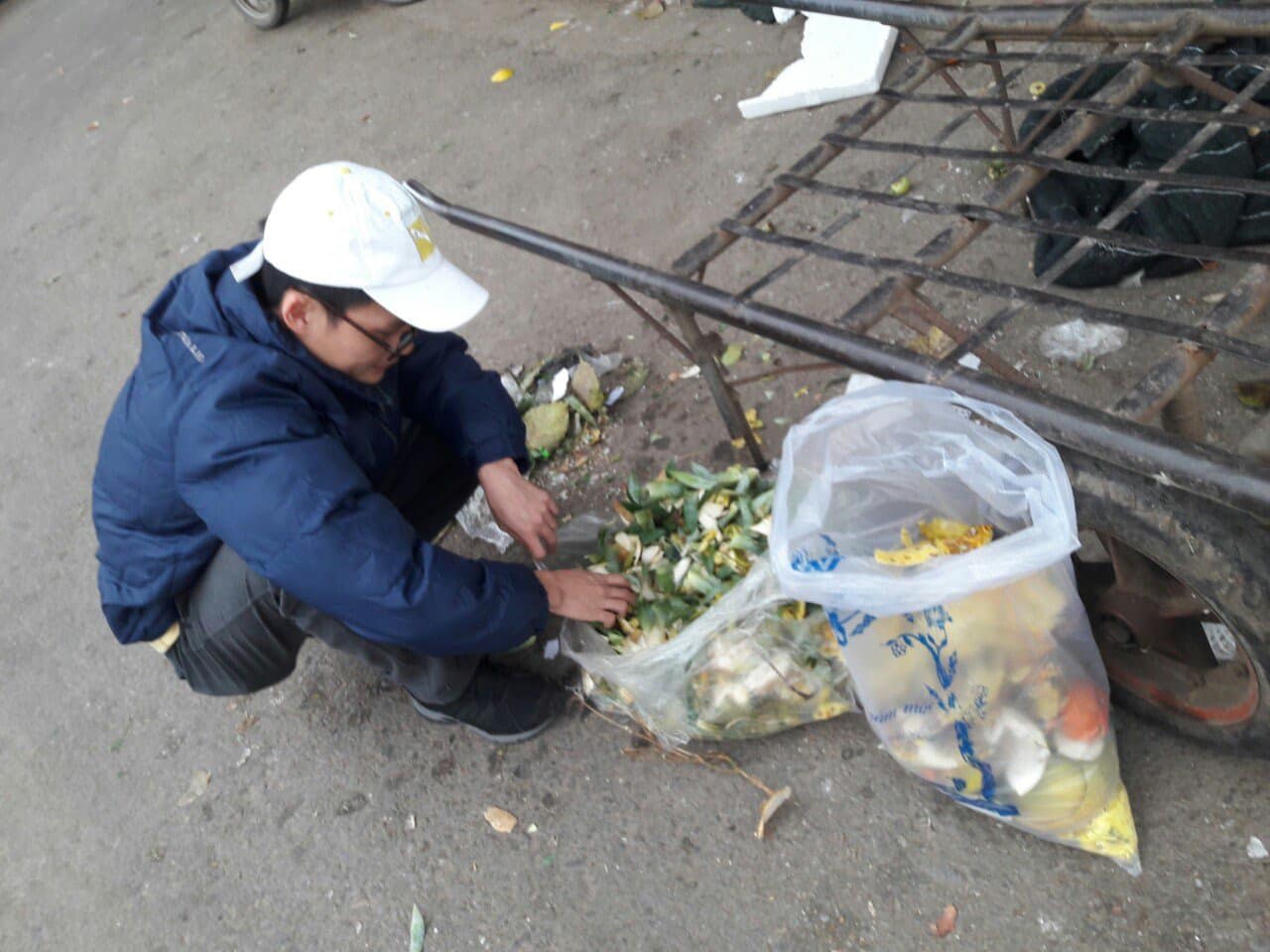
Originating from the " pineapple capital" in the North Central region, Mr. Hoang and Ms. Ngoc have been used to the scene of dozens of tons of pineapple shells being thrown into the environment since childhood. But instead of considering it as obvious as many people, they are tormented by the scene of waste turning into a source of pollution.
He expressed: "If not carefully handled, the huge amount of pineapple shells thrown away will decompose, causing unpleasant odors, water pollution and CO2 emissions, affecting public health. Meanwhile, pineapple peel has a rich amount of organic acid, which is effective in deodorizing and cleaning."
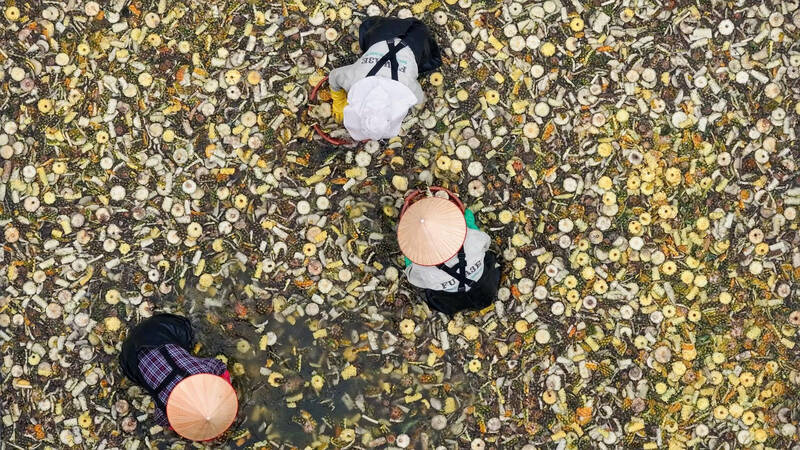
From experimental products to green brands
In 2016, Mr. Hoang and his colleagues had the opportunity to approach the research of Thai Dr. Rosuko on "eco-enzyme" - a method of fermenting agricultural waste to create a bioenzyme that can be cleaned.
He and his colleagues seemed to be given more strength to start the project.
After 3 years of tireless research and testing bioenzyme formulas to develop products, Mr. Hoang and his colleagues have often failed to optimize the unpleasant taste characteristic of the fermentation process, color and product efficiency.
The group continuously improved the recipe, testing many types of natural essential oils such as lemongrass, lemon, cinnamon, key fruit... to create fragrance and increase antibacterial and insect repellent.
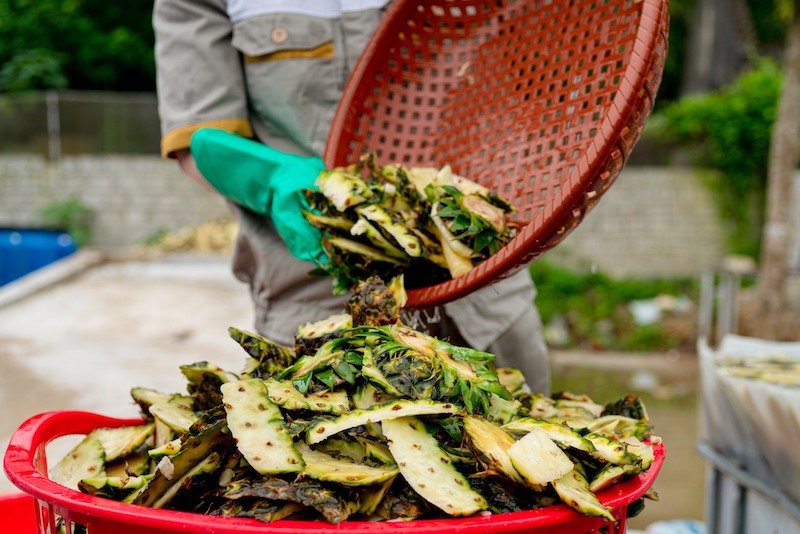
Mr. Hoang shared: "' Consuming the first batches of products is quite difficult because we have to convince each store and agent. The market at that time was still hesitant because of the characteristic sour smell of the fermentation process and the concept of "eco-enzyme" was too new in Vietnam".
Seeing her husband's dedication, Ms. Ngoc did not mind the hardship of riding a motorbike to each place to introduce and share knowledge about bioentsways and the harmful effects of industrial chemicals.
"Seeing my wife trying so hard, I can't help but give up the products that I have put a lot of effort in," he added.
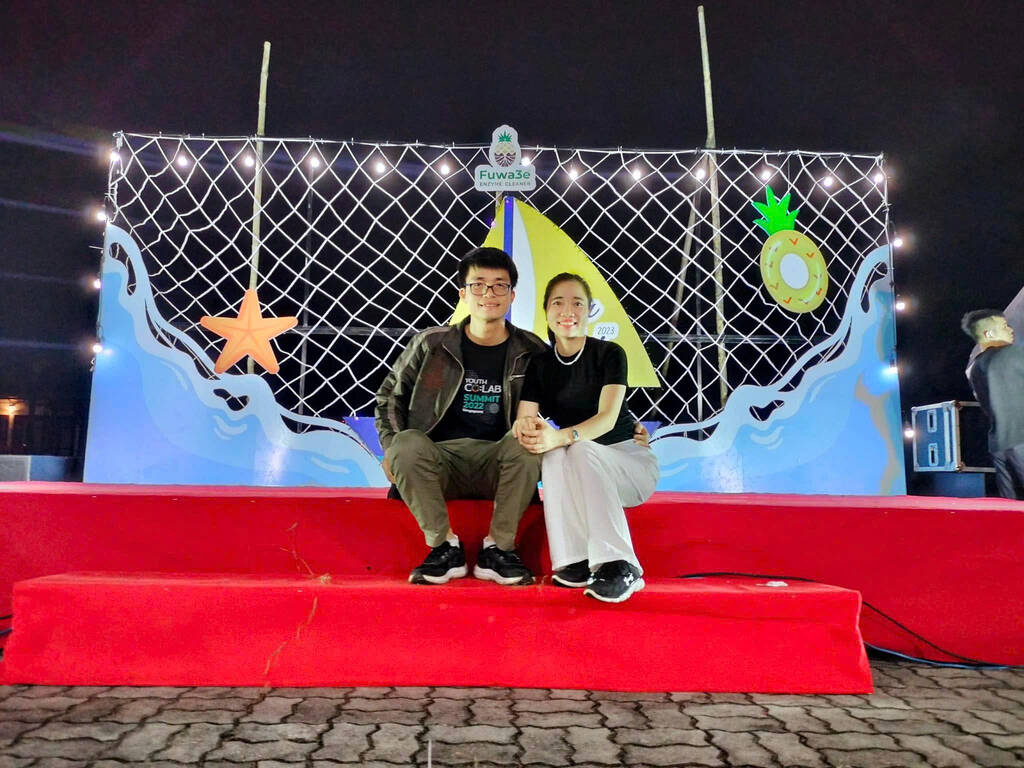
Ms. Ngoc, currently running the business with her husband and colleagues, said: "Every year we help recycle 250 tons of pineapple, reduce 54,000 liters of toxic chemicals released into the environment and commit to reducing 150,000 plastic bottles with the "refill" program.
The whole group has successfully applied the circular economic model to the production and consumption process, so that the factory operates without waste. The pineapple peel after soaking is used as a natural fertilizer.




